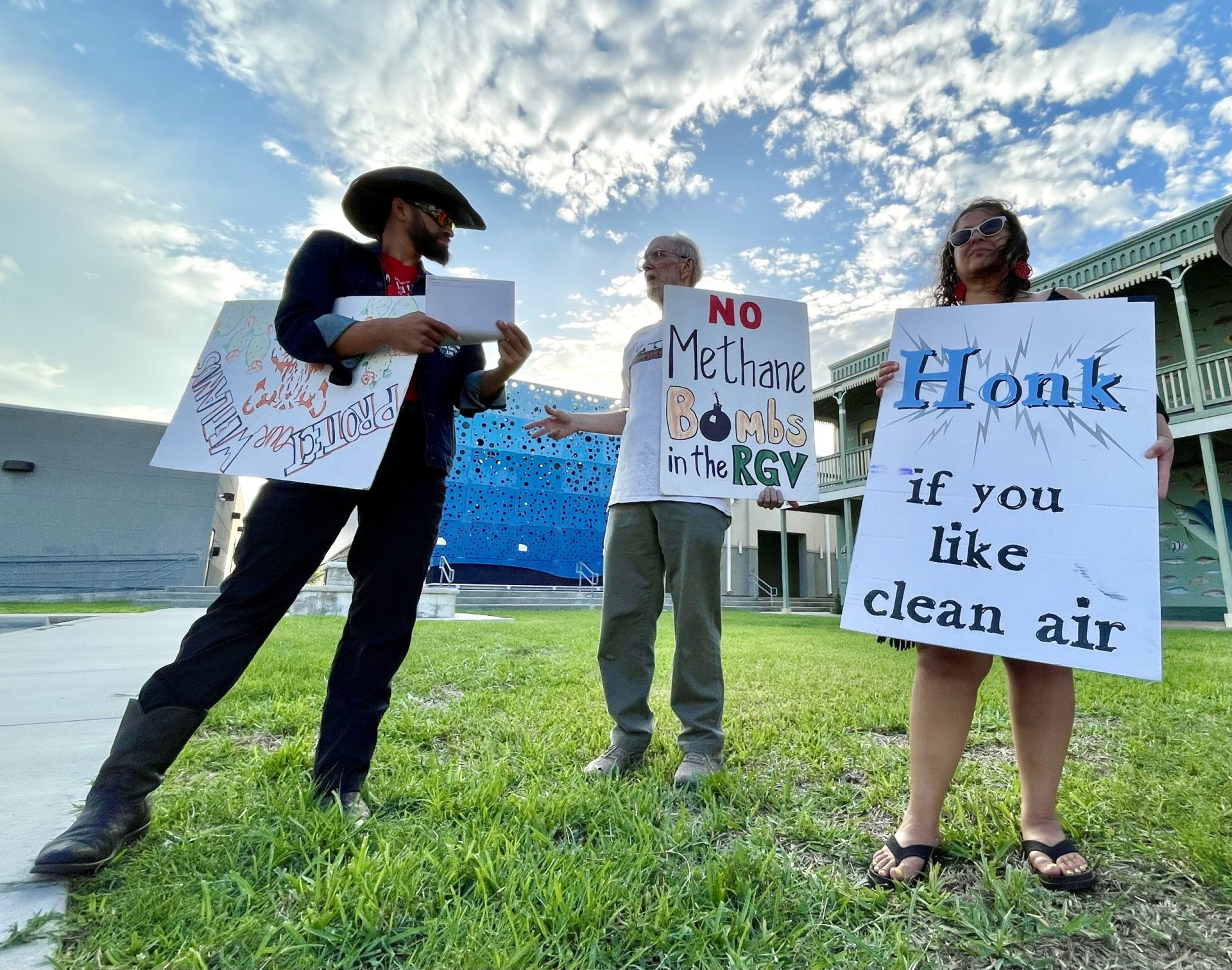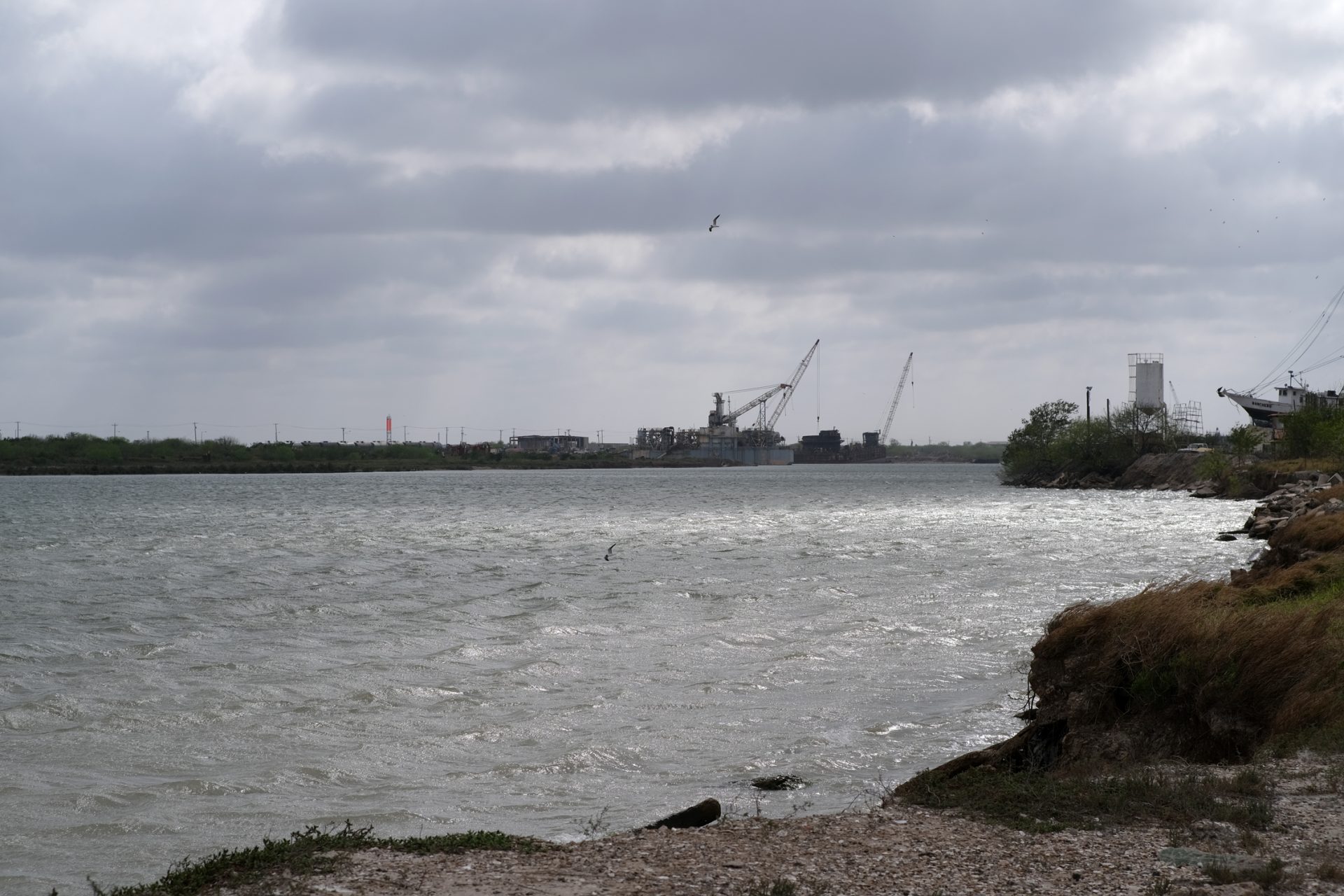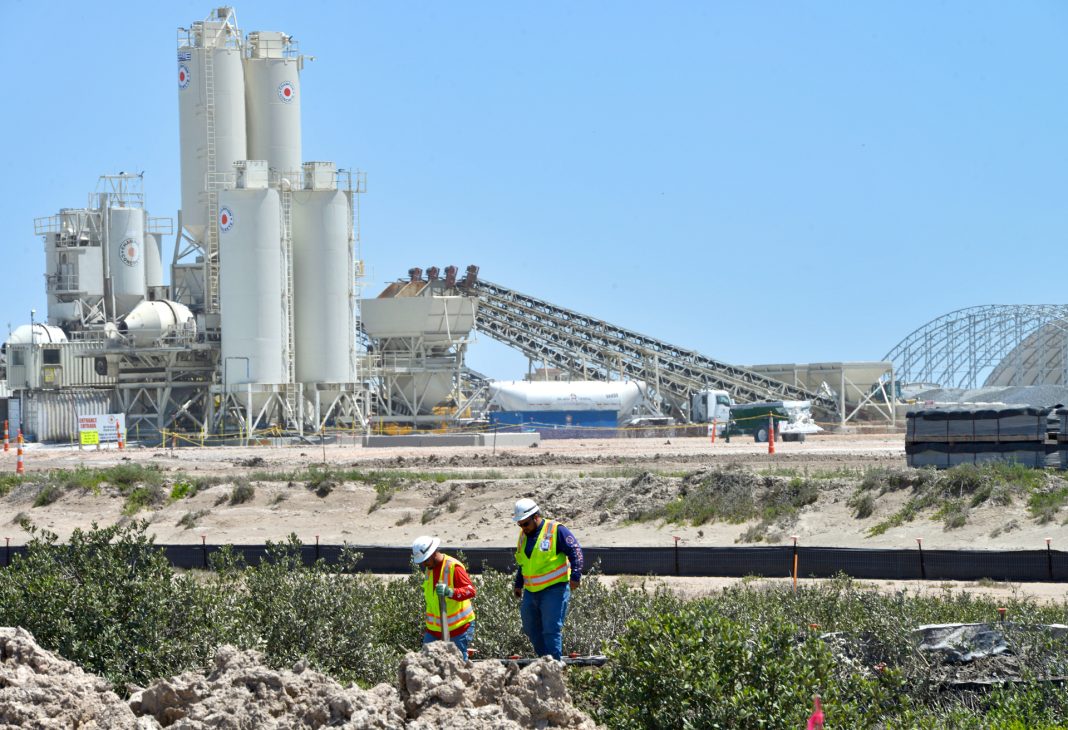|
Only have a minute? Listen instead
Getting your Trinity Audio player ready...
|
With site preparation of one LNG terminal already underway at the Port of Brownsville, dozens of environmental groups, social justice organizations and private individuals from the Rio Grande Valley and elsewhere along the coast sent a letter to dozens of financial firms around the world urging them not to support liquefied natural gas terminal projects in the Rio Grande Valley.
Ground was broken months ago on NextDecade’s sprawling Rio Grande LNG terminal on 984 acres along the Brownsville Ship Channel, while Glenfarne’s Texas LNG, a smaller project, says it expects to make a Final Investment Decision this year on whether to proceed with construction. The letter, sent July 22 by the Sierra Club, South Texas Human Rights Center, Texas Campaign for the Environment and other LNG foes, targeted those two projects as well as Rio Grande LNG’s associated Rio Bravo Pipeline Project.
Among the recipients were banks, insurance companies, asset managers and other financial institutions in the United States and Canada as well as Europe and the United Kingdom, China, Japan, Bermuda, Saudi Arabia, the United Arab Emirates, South Korea and Singapore.

“Providing financial support for these projects poses both financial and reputational risks to your institution and would cause irreparable harm to local ecosystems, indigenous rights, and the climate,” the letter read in part.
“We urge you to end your relationship with NextDecade and their Rio Grande LNG export terminal, (pipeline builder) Enbridge and the Rio Bravo pipeline, and to not provide any additional financial support to these or other proposed projects in the Rio Grande Valley or throughout the U.S. Gulf Coast.”
Natural gas is mostly methane, a “potent greenhouse gas that has more than 80 times the warming power of carbon dioxide over the first 20 years after it reaches the atmosphere,” according to the letter, which charged that methane is not a “bridge fuel” to clean energy as LNG proponents claim, but rather a “continuation of fossil fuel expansion.”
“We caution that if your institution supports these dangerous projects in the Rio Grande Valley, it faces both substantial financial risk — as the projects continue to face delays and legal hurdles — and significant reputational damage — as the public urgently demands responsible and sustainable financing practices,” the letter stated.

Dave Cortez, Sierra Club Lone Star Chapter director, said Texas Gulf coast residents have suffered the impacts of LNG facilities for years, including explosions, pollution, heavy truck traffic, significant water usage and “desecration of our natural spaces.” Meanwhile, people across the state are experiencing the effects of climate change, with LNG terminals one of the main culprits, he said.
“These financial institutions have a choice: Willfully ignore the growing chorus of Texans and Americans calling for swift action on climate change, or support investments in a 21st-century clean energy economy for all,” Cortez said.
Lupita Sanchez, director of Border Workers United, said Valley residents deserve “better opportunities” than LNG.
“We deserve an opportunity for decent jobs with fair income, security in the workplace, and social protection. LNG will destroy our land, air and water. LNG is a threat to our environment and health.”




